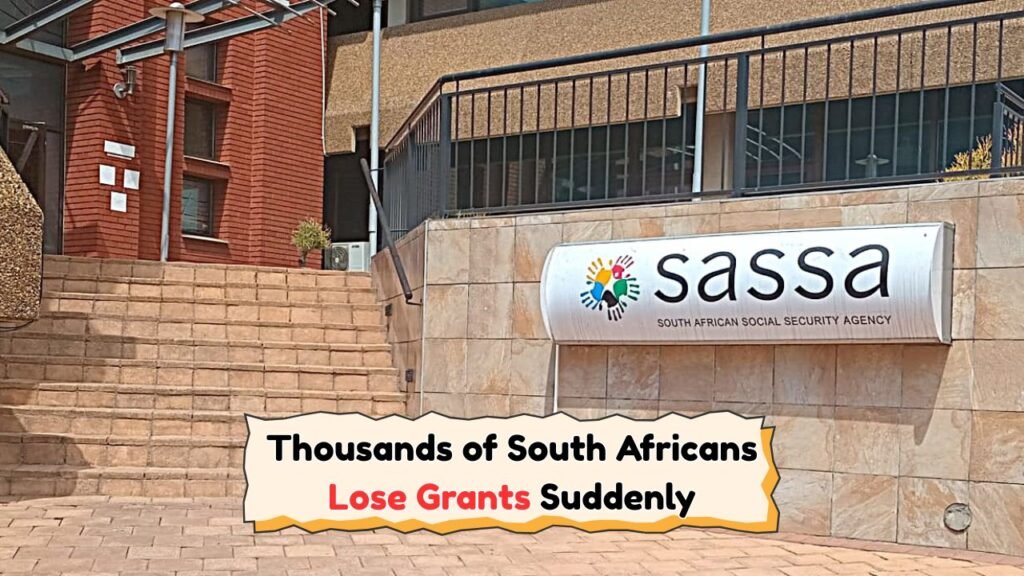Thousands in Peril as SASSA Grant Suspensions Take Effect in September 2025: The announcement of SASSA grant suspensions set to take effect in September 2025 has stirred significant concern across South Africa. This move affects thousands of vulnerable individuals who rely on these grants for their daily sustenance. The South African Social Security Agency (SASSA) provides critical financial assistance to numerous citizens, and the impending suspensions have raised alarms about the potential impact on the country’s socio-economic fabric. Many beneficiaries are anxious about how they will meet their basic needs without this financial support. With the grants serving as a lifeline for many, the news of suspension leaves them facing an uncertain future.

Impact of SASSA Grant Suspensions on Vulnerable Communities
The suspension of SASSA grants is expected to have a profound impact on vulnerable communities across South Africa. These grants are crucial for individuals who are unable to support themselves due to various reasons such as unemployment, disability, or old age. For many, the grant money is the only source of income, helping them to cover essential expenses like food, healthcare, and education. The suspension could lead to increased poverty levels and exacerbate existing inequalities. It is anticipated that communities already struggling with limited resources will face even greater challenges, potentially leading to a rise in social issues such as increased crime rates and deteriorating mental health conditions. The government’s decision has sparked widespread debate, with calls from social activists and community leaders urging for immediate intervention to prevent a humanitarian crisis.
Government’s Response and Possible Solutions
In light of the outcry over the SASSA grant suspensions, the government has been prompted to respond. Officials have acknowledged the concerns raised by citizens and have suggested that the suspensions are a temporary measure due to budgetary constraints. However, they have assured the public that efforts are being made to reinstate the grants as soon as possible. One potential solution being discussed is the reallocation of funds from other areas of the budget to cover the grants. Additionally, there is talk of introducing new policies aimed at improving the efficiency of grant distribution and reducing fraudulent claims. The government is also exploring partnerships with private organizations and NGOs to provide additional support to affected individuals during this period. While these measures offer some hope, the urgency of the situation demands swift action to prevent further hardship for those dependent on these grants.
Community Initiatives to Support Affected Individuals
As the reality of the SASSA grant suspensions sets in, communities across South Africa are mobilizing to support those affected. Local organizations and charities are stepping up efforts to provide food, clothing, and other essentials to individuals in need. Many community centers have started initiatives to offer free meals and basic healthcare services to grant beneficiaries. Additionally, there is a growing movement among citizens to donate goods and volunteer their time to assist in relief efforts. Social media campaigns are also playing a critical role, raising awareness and encouraging more people to contribute to the cause. These grassroots initiatives demonstrate the resilience and solidarity of South Africans in the face of adversity, as they come together to support one another during this challenging time.
Long-term Implications of SASSA Grant Suspensions
The long-term implications of the SASSA grant suspensions pose significant challenges for South Africa’s socio-economic landscape. If not addressed promptly, there is a risk that the temporary suspensions could lead to lasting damage, with more people falling into poverty and increasing reliance on social support systems. Economists warn that the prolonged absence of financial aid may trigger a negative cycle, with reduced consumer spending affecting local businesses and hindering economic growth. Furthermore, the psychological impact on grant recipients cannot be underestimated, as the stress of financial insecurity may lead to mental health issues and decreased quality of life. Policymakers must therefore consider the broader consequences of their decisions and strive to implement sustainable solutions that safeguard the welfare of vulnerable groups while ensuring the country’s economic stability.


